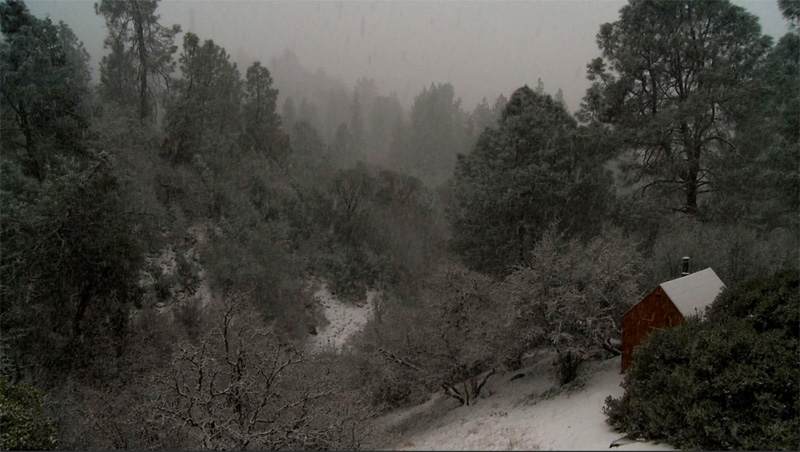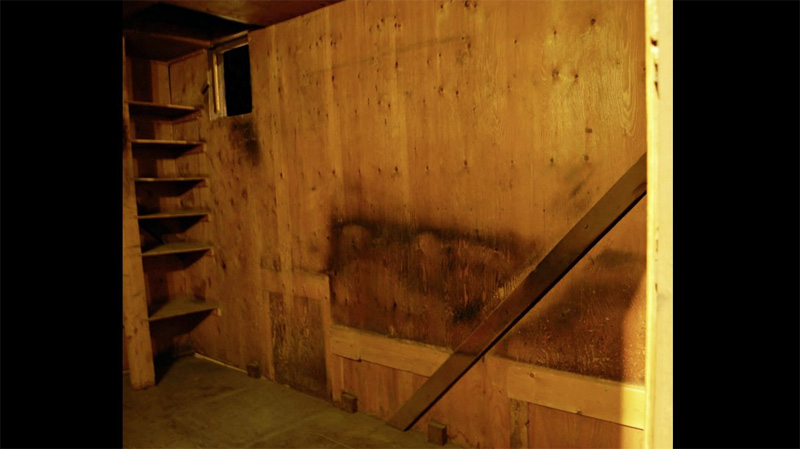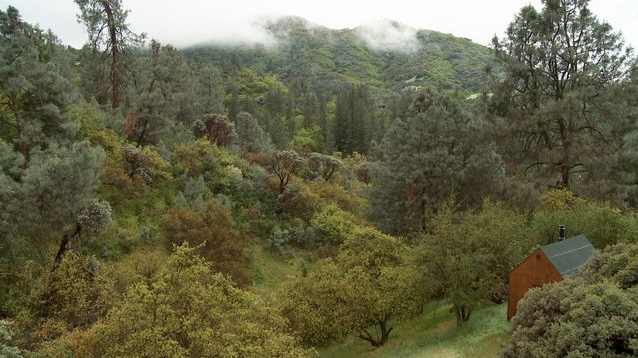Stemple Pass
-
Réalisé par James Benning • Écrit par James Benning
-
États-Unis, Autriche • 2012 • 121 minutes • Couleur
- Réalisation :
James Benning - Écriture :
James Benning - Image :
James Benning - Son :
James Benning - Montage :
James Benning
- Production (structure) :
James Benning - Ayant droit :
James Benning
- N° ISAN :
non renseigné
Résumé
"Conçu pour le cinéma, Stemple Pass représente d’autant plus un défi pour les spectateurs aventureux qui le visionnent en galerie. C’est l’un des films les plus denses de Benning ; l’artiste y construit une réflexion majeure sur la marginalité, comme il l’avait fait avec une œuvre antérieure, American Dreams (lost and found) (1984). Centré sur Ted Kaczynski, un terroriste américain surnommé "the Unabomber", le projet Stemple Pass a été entamé grâce à l’acquisition des carnets ayant appartenu au célèbre reclus, vendus aux enchères par le FBI. Les journaux étaient rédigés en partie au moyen d’un code numérique, mais Benning parvint à les déchiffrer grâce à un logiciel mathématique qu’il conçut lui-même. L’artiste en lit des extraits (ainsi que d’autres documents) à l’intérieur d’une réplique – qu’il a, là encore, construite – de la cabane de Kaczynski. En s’ajoutant aux images, l’acoustique particulière du bâtiment donne au film une dimension sculpturale. La structure et le processus d’élaboration de ce projet mettent en œuvre les préoccupations de Benning pour la durée, les mathématiques, la nature, l’iconoclastie politique, et le caractère américain. Tour de force conceptuel - ou, si vous préférez, possible narration -, le lent suspense de Stemple Pass a véritablement de quoi vous faire frissonner."
(Gabe Klinger - Centre Vox)
"Stemple Pass Road is gravel and runs south out of Lincoln, Montana. Five miles down, on the left, was Ted Kaczynski’s mailbox, and about a hundred yards in, his cabin that he began building in June 1971. That same year he began a journal. When he was arrested on 3 April 1996, suspected of being the unabomber, the journal was found in the cabin, along with 257 books, hand written and typed copies of his manifesto, some concealed notes, and a few coded notebooks filled with numbers. In June 2011 the FBI auctioned off Kaczynski’s belongings, and through circumstance, the journal, concealed notes, and coded notebooks came into my possession. I read all that I could, and then wrote a computer programme to decode the notebooks. These are the texts used (without permission) in Stemple Pass. Five years earlier I built a replica of the Walden Pond cabin Henry David Thoreau built in 1845. Then in the spring of 2008 I built a copy of another cabin, Kaczynski’s. This was the beginning of the Two Cabins Project."
(James Benning)
"An isolated cabin set amongst a group of small trees, a forest rising up behind it that grows progressively thicker to cover the mountain peak beyond. Four static shots, each from the same angle and each half an hour in length: spring, fall, winter and finally summer. Birdsong, flies, mist over the peak, rain, snow, a sunset. A voice that periodically intrudes on these tranquil scenes, reading out passages from the writings of infamous anti-technology terrorist Ted Kaczynski, the cabin being a replica of his own one. Accounts of living on hunted meat, small acts of vandalism, homemade bombs, fingers being blown off, remorse or lack of it, the beauty of nature, environmental destruction, the repressive current order.
The relationship between text and image winds its way between association, correlation and contrast; fascination gives way to disgust, indignation to identification. Yet by the close, text and image have re-converged to ravishing effect. As the sun’s rays weaken and the trees gradually turn red and then black, the senses have been sharpened in just the way Kaczynski describes: a heightened, almost blissful feel for nature that emerges from pure duration."
(Berlinale)
Mot(s)-clé(s) thématique(s)
Sélections et distinctions
- 2024 • Cinéma du réel • Paris (France) • L'Expérience Benning
- 2013 • Karlovy Vary International Film Festival • Prague (République tchèque) • Imagina
- 2013 • Viennale - Vienna International Film Festival • Vienne (Autriche) • Sélection
- 2013 • Festival international du film de Berlin - Berlinale • Berlin (Allemagne) • Forum
- 2013 • VIFF (Vancouver International Film Festival) • Vancouver (Canada) • Sélection
- 2013 • BAFICI - Buenos Aires Festival International du Cinéma Indépendant • Buenos Aires (Argentine) • Sélection
Comment avoir accès au film ?
-
Édition DVD
- Il n'existe pas d'édition DVD à notre connaissance
-
Accès VOD
- Il n'existe pas d'accès en VOD à notre connaissance
- Distribution
- Aide sur les moyens d'accéder à un film


